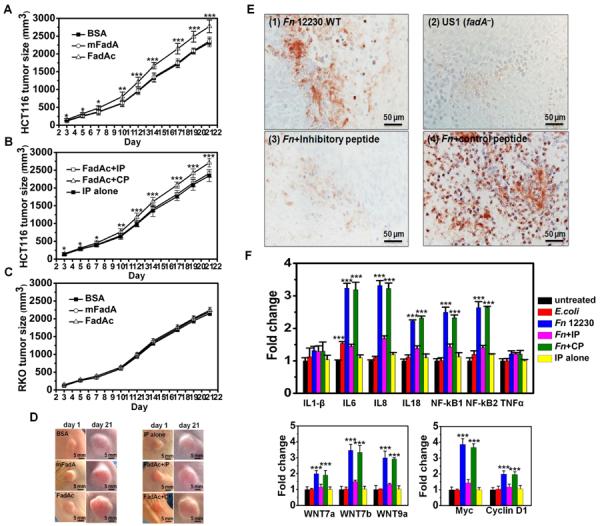Figure 6. FadA promotes E-cadherin-mediated CRC tumor growth and induction of pro-inflammatory cytokines in xenograft mice.

HCT116 or RKO were injected subcutaneously and bilaterally into female nude mice, which were then randomized (5 per group) to receive treatments. A–C. FadAc stimulates HCT116 but not RKO xenograft growth. Purified FadAc, mFadA, or BSA were injected into xenografts of HCT116 either alone (A), or along with the inhibitory (IP) or control (CP) peptides (B), or RKO alone (C) in nude mice. IP alone is injected into HCT116 as a negative control (B). D. Representative tumors from A and B are shown. The first day of protein injection was designated as “day 1”. All tumors look the same on day 1. Notice the size increase of the tumor treated with FadAc and FadAc+CP on day 21, compared to other tumors on the same day. E. Immunohistochemical staining of xenografts infected with wild-type Fn (Fn), alone and with the inhibitory or control peptides, and the fadA-deletion mutant US1 (fadA−) using rabbit anti-Fn polyclonal antibodies. For controls, xenografts infected with wild-type Fn was stained with pre-serum, and xenografts infected with E. coli DH5α were stained with anti-Fn antibodies (data not shown). F. Wild-type Fn induces expression of NF-kappaB and pro-inflammatory cytokines IL-6, 8, and 18; Wnt 7a, 7b, and 9a; and Myc and Cyclin D1 in HCT116 xenografts, as determined by qPCR. The inductions were inhibited by IP, but not by CP. E. coli only weakly induced IL-6. The results are presented as mean±SD. ***p<0.001. See also Figure S4.
